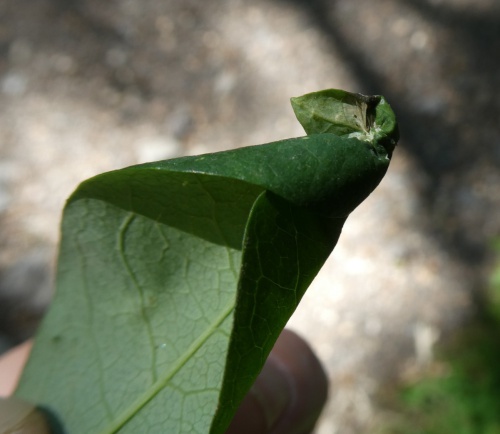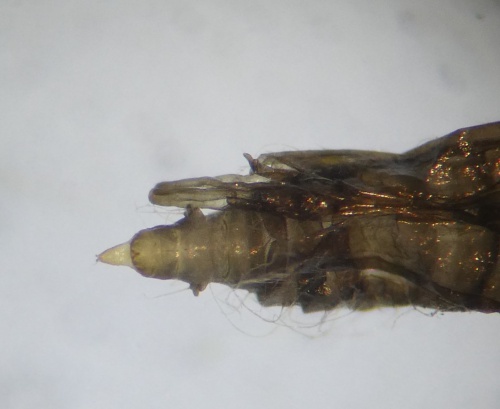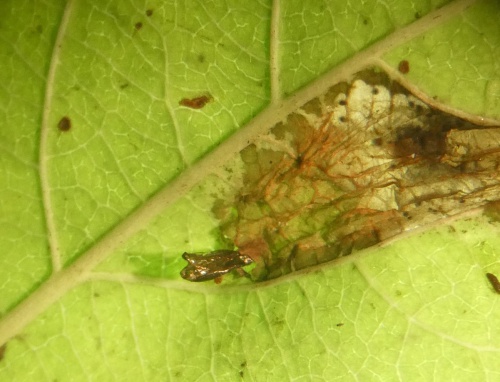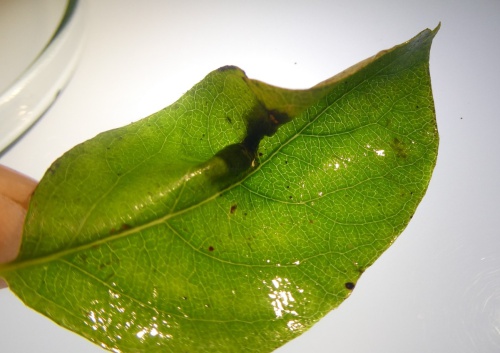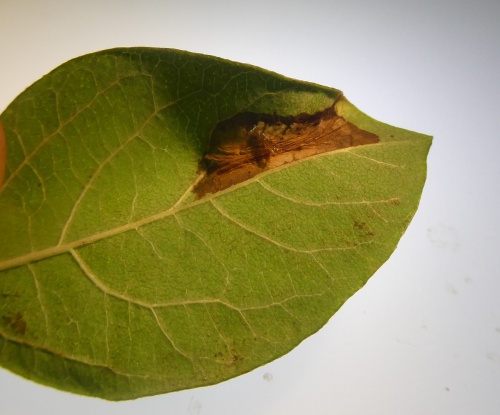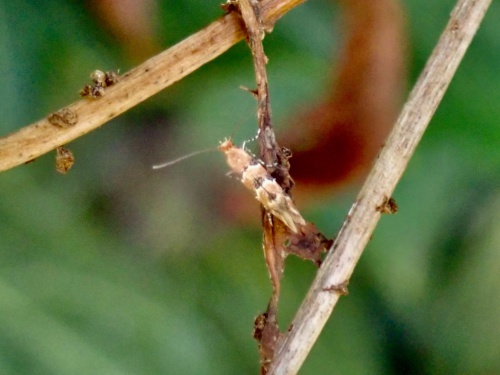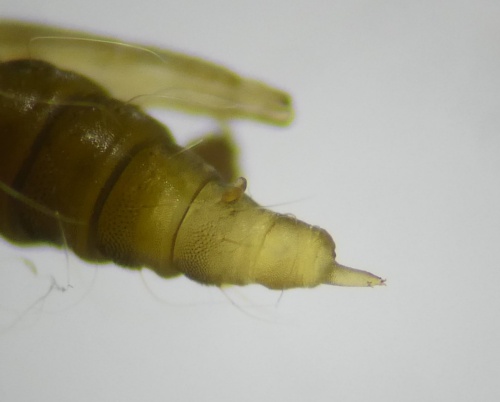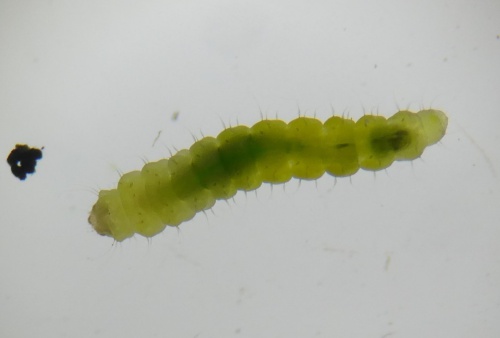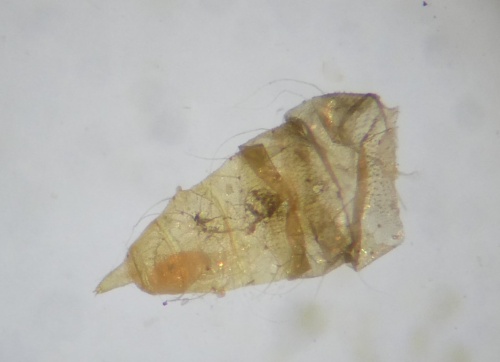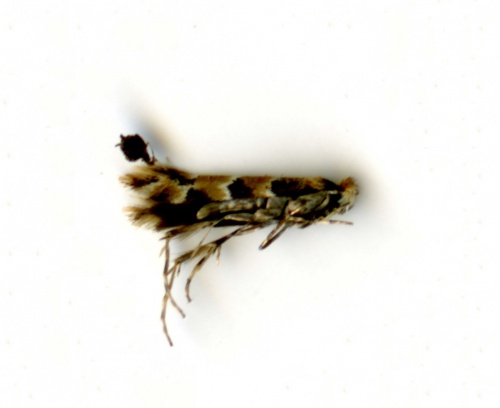Phyllonorycter trifasciella
Honeysuckle Midget
Wingspan 7-8 mm. This species has a banded patterning of chestnut, off white and dark browns. The larva mines the leaves of Honeysuckle, and occasionally Snowberry or Himalayan Honeysuckle, in a small tentiform mine that contracts diagonally causing the leaf to roll up. There is no cocoon, and the pupal cremaster has a distinctive shape wih two long hooks at the tip and two lateral processes.
Phyllonorycter emberizaepennella mines can be similar, but have different pupa and no cocoon
Photograph leaf mine and pupa; note host species
Woodland and hedgerows.
This species is unusual among Phyllonorycter in having three generations, with adults on the wing in November, as well as the usual May and August periods.
The foodplant is Honeysuckle, though occasionally Snowberry and Himalayan Honeysuckle are used. The mine is quite distinctive, occupying a large part of a leaf and causing it to fold and twist into a conical shape. The mines can be quite abundant where it is found.
A common and widespread species throughout the British Isles. In the Butterfly Conservation’s Microlepidoptera Report 2011 this species was classified as common.
Uncommon or under recorded in Leicestershire and Rutland. L&R Moth Group status = D (rare or rarely recorded)
Leicestershire & Rutland Map
Enter a town or village to see local records
MAP KEY:
Yellow squares = NBN records (all known data)
Coloured circles = NatureSpot records: 2025+ | 2020-2024 | pre-2020
UK Map
Species profile
- Common names
- Honeysuckle Midget
- Species group:
- Moths
- Kingdom:
- Animalia
- Order:
- Lepidoptera
- Family:
- Gracillariidae
- Records on NatureSpot:
- 19
- First record:
- 24/04/2006 (Mark Skevington)
- Last record:
- 07/10/2024 (Poole, Adam)
Total records by month
% of records within its species group
10km squares with records
The latest images and records displayed below include those awaiting verification checks so we cannot guarantee that every identification is correct. Once accepted, the record displays a green tick.
In the Latest Records section, click on the header to sort A-Z, and again to sort Z-A. Use the header boxes to filter the list.


